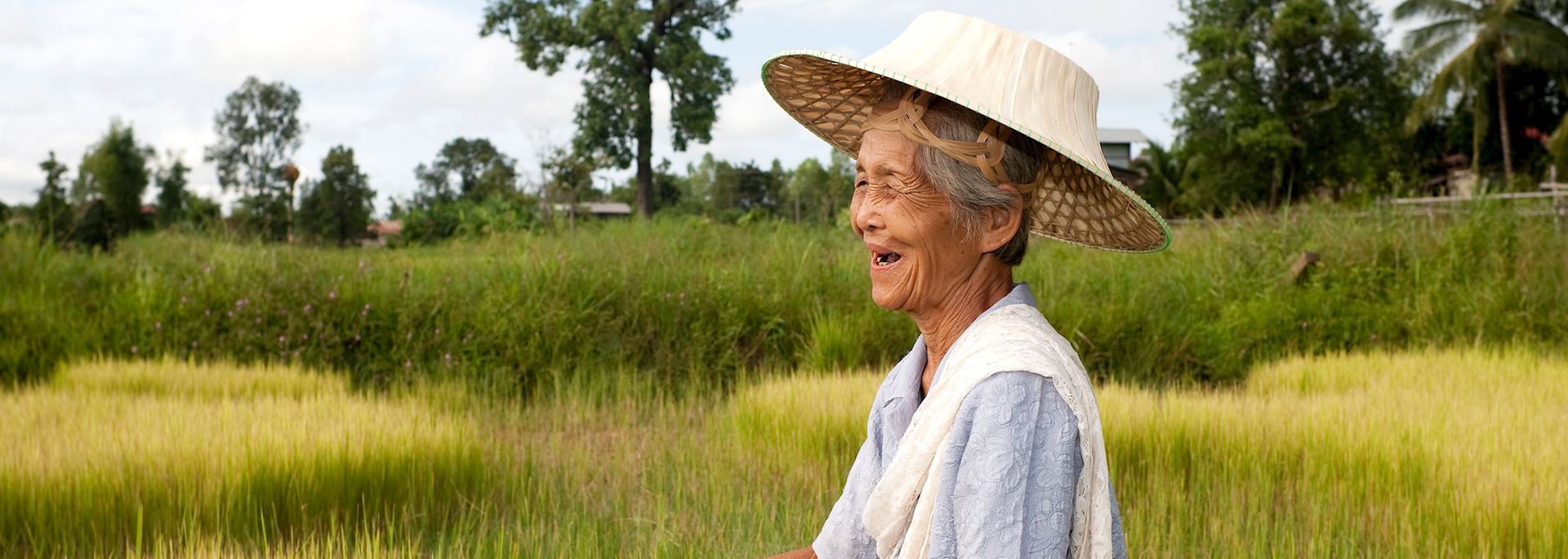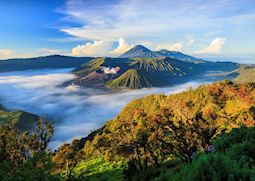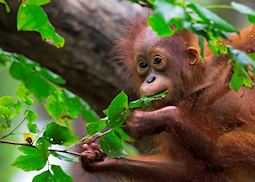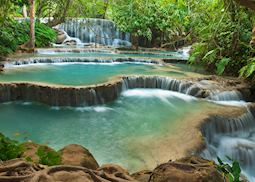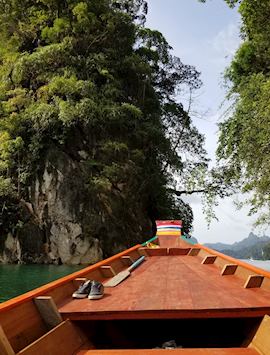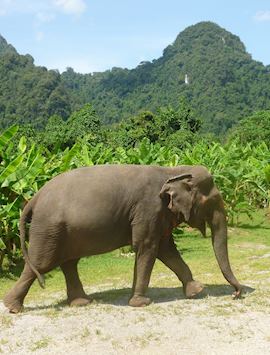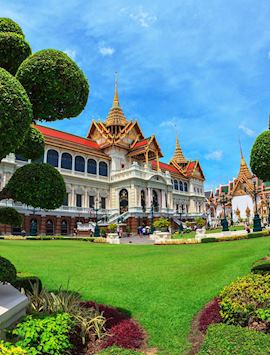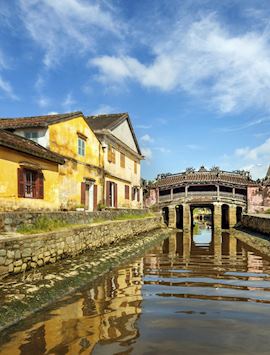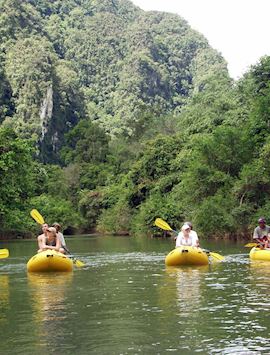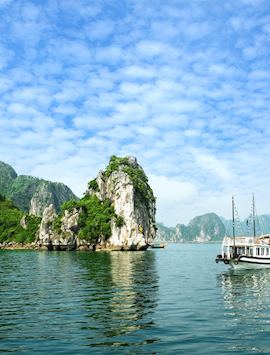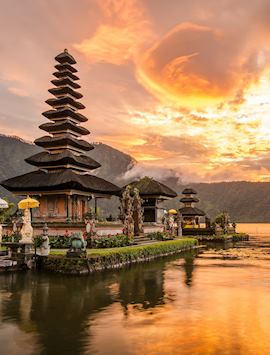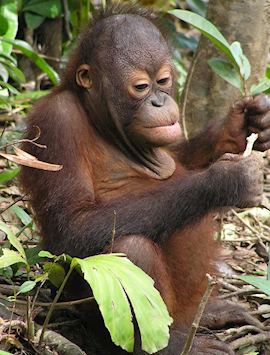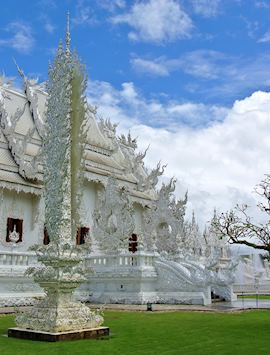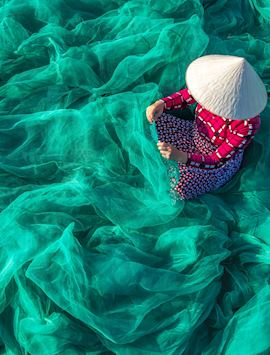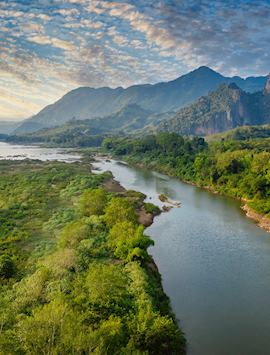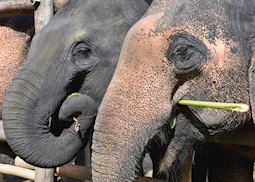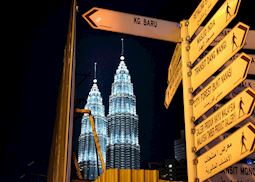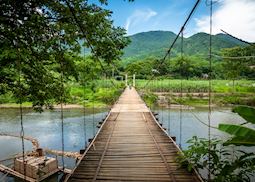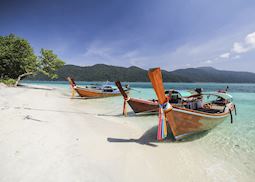
As the first part of the world we ever discovered, Southeast Asia will always be a little bit special. Regularly revisiting the region over decades, our specialists have built on their experiences. We can help you find the hidden corners of familiar destinations like Thailand or Vietnam, or plan the logistics of a more intrepid trip across the Philippines.
The region sweeps east from Myanmar and the Malay Peninsula to a string of archipelagos that jewel the Arafura Sea. Throughout this land, you’ll encounter a mosaic of indigenous dynasties touched by colonialism. You might come across saffron-robed monks, vibrant Hindu festivals or animalistic Marapu rituals. On a tailor-made vacation in Southeast Asia, you can focus in whichever direction you’d like, whether that’s spotting wild orangutan in Borneo or tasting the gastronomic delights of Malaysia.
who's been there
-
617-223-4521617-223-4105
- Make an inquiry
Trip ideas in Southeast Asia
These itineraries will give you a starting point for what your trip could entail. They cover routes that we've found work particularly well and feature some of our favorite places to stay. Treat them just as inspiration, as each trip is created uniquely for you and there are many more options available.
Our expert guides to exploring Southeast Asia
Capturing our specialists’ extensive travel experience in Southeast Asia, these guides share inspiration, recommendations and our honest advice for how to enjoy the best of what the region can offer in the most authentic ways. From the wealth of options we describe, you can narrow down the choices and start to shape your own trip.
-
![River cruising in Asia]()
Six Asian destinations to explore by boat
Our video covers six destinations we recommend exploring by boat, from a cruise along the Yangtze in China, and the UNESCO heritage sites in Myanmar, to travelling along the Mekong and exploring the islands of Indonesia. We also cover a rice barge excursion in Thailand and river cruises in India.
-
Southeast Asia: our responsible approach ![Elephant Sanctuary Visit - Half Day, Chiang Rai]()
Southeast Asia: our responsible approach
Southeast Asia: our responsible approach
Helping you journey responsibly is a core part of our ethos. Read more about how we do this across Southeast Asia, from plastic reduction and community support, to animal welfare and marine conservation.
Read this guide -
48 hours in Kuala Lumpur: what to do & where to stay ![Petronas Towers, Kuala Lumpur]()
48 hours in Kuala Lumpur: what to do & where to stay
48 hours in Kuala Lumpur: what to do & where to stay
Tasting your first bite of sweet Malay satay, strolling around the silk shops in Little India, watching skyscrapers glow as the sun sets over the city… Discover how to make the most of Kuala Lumpur in just 48 hours.
Read this guide -
Vietnam, Cambodia & Laos combined: 4 multi-destination trips ![Bridge at Pu Luong]()
Vietnam, Cambodia & Laos combined: 4 multi-destination trips
Vietnam, Cambodia & Laos combined: 4 multi-destination trips
Sampling fragrant cuisine with a local food blogger in Vietnam. Cruising past forested mountains along the Mekong River in Laos. Venturing to Angkor’s lesser-visited temples in Cambodia. Southeast Asia specialist Alex shares his recommendations for a trip that combines all three countries.
Read this guide
